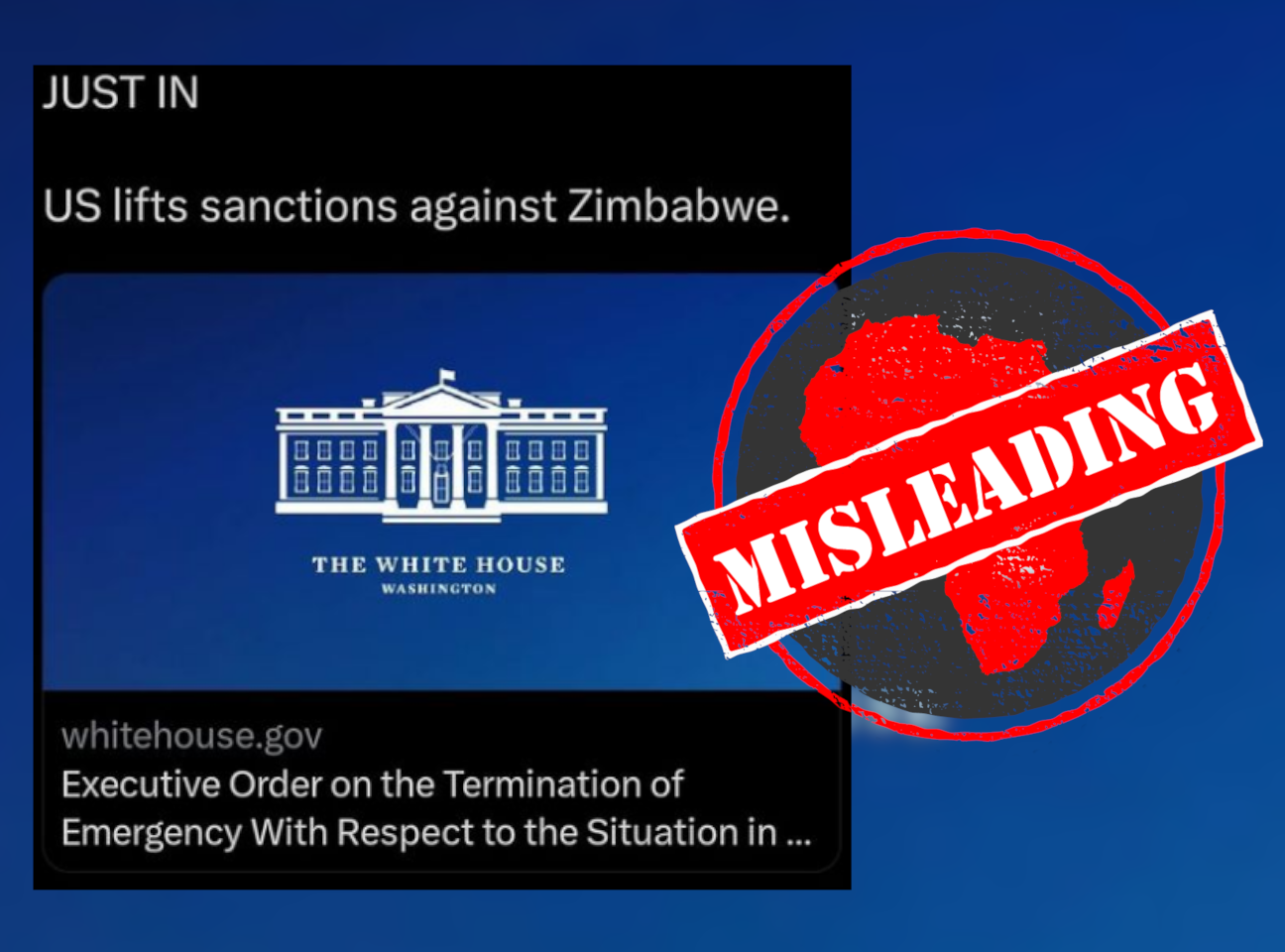

‘Why Zimbabweans must go back home’
Soon after news of Biden’s order broke, social media users began to claim that it meant the US had lifted sanctions “on Zimbabwe”.
In neighbouring South Africa, some versions of the claim have overtones of xenophobia.
A 13 March post on social media platform X, formerly Twitter, by Dudula News reads:
WHY ZIMBABWEANS MUST GO BACK HOME. The US has lifted sanctions on Zimbabwe and investors are looking to pour money into the country. ZEPs must be terminated with immediate effect so that Zimbabweans can go back home to rebuild their country.
Operation Dudula is a South African anti-migrant movement widely considered to be xenophobic. The Zimbabwean exemption permit or ZEP allows people from Zimbabwe to live and work in South Africa.
Other versions of the claim include:
- Zimbabwe sanctions are lifted then zambabwean go home. USA lifted them so burn us South African when we come looking for jobs.
- Now that the United States has lifted the decades long of sanctions on Zimbabwe there is a very big speculation that there are somr countries that will be the next targets, and South Africa looks like the likely candidate …
- The United States has lifted sanctions against Zimbabwe after 20 years, meaning that Zimbabwe can now access loans from the World Bank and International Monetary Fund to grow its economy.
- Good news for Zimbabwe. US sanctions have been lifted all together according to informants… What a time. I’m going there to invest.
The claim can also be seen here, here, here, here, here, here, here, here, here, here, here and here.
Biden’s order did repeal the sanctions imposed in 2003, 2005 and 2008. But a new set of sanctions on individuals and companies was introduced at the same time.
And sanctions against the country of Zimbabwe have not been lifted.
Sanctions moved to different regime – and Zidera remains
On 4 March, the day Biden signed the executive order, the US treasury’s Ofac imposed fresh sanctions on 11 Zimbabwean individuals and three businesses for “involvement in corruption or serious human rights abuse”.
The new sanctions list includes president Emmerson Mnangagwa and his wife Auxillia Mnangagwa, businessperson Kudakwashe Tagwirei and his wife Sandra Mpunga, as well as vice-president Constantino Chiwenga and defence minister Oppah Muchinguri.
The sanctioned firms are Tagwirei and Mpunga’s Sakunda Holdings, its subsidiary Fossil Agro, and the linked company Fossil Contracting.
The new sanctions were quickly condemned by government officials in Zimbabwe.
Targeted Ofac sanctions on high-ranking Zimbabweans now fall under the Global Magnitsky Human Rights Accountability Act, instead of presidential executive orders. Under the act, the US penalises foreign government officials for what it determines are human rights offences by freezing their US-held assets and barring them from entering the US.
More than this, the main thrust of US sanctions against Zimbabwe as a country, the Zimbabwe Democracy and Economic Recovery Act of 2001, is still in place.
Known as Zidera or Zdera and amended in 2018, the act, among other things, prevents Zimbabwe from accessing funds from global financial institutions. These include the International Monetary Fund and the World Bank’s International Development Association and International Bank for Reconstruction and Development.
On 7 March US state department official David Gainer clarified Biden’s order:
Our policy toward Zimbabwe has not changed, but our sanction tools have. We continue to have serious concerns about human rights abuses and corruption. Key individuals … bear responsibility for these actions … With the Global Magnitsky programme, we’ll better be able to promote accountability for persons who engage in that conduct in Zimbabwe.
While the order removed one sanctions regime, it was replaced with another. US sanctions on Zimbabwe have not been lifted.
